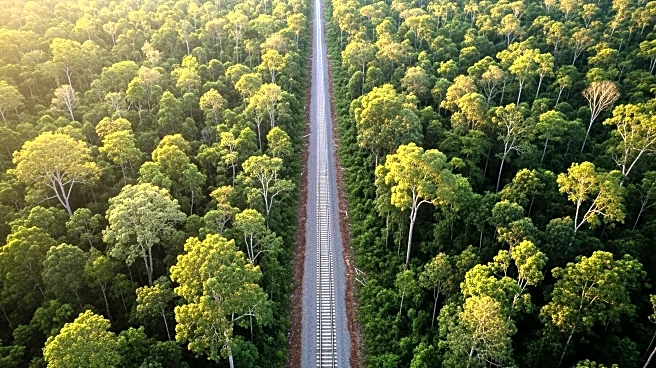What's Happening?
Brazil's proposed Ferrograo railway project, intended to transport commodities like corn and soybeans through the Amazon, has sparked protests from Indigenous groups and environmentalists. The railway would stretch 621 miles from the southern edge of
the rainforest to a port along the Amazon River, facilitating exports to China and other countries. The project, estimated to cost $3.8 billion, faces opposition due to its potential impact on deforestation and Indigenous communities. Indigenous leaders claim the government has ignored their recommendations and failed to consult affected communities. The Brazilian government argues the railway is essential for infrastructure development and reducing carbon emissions by replacing truck transport.
Why It's Important?
The Ferrograo railway project highlights the tension between economic development and environmental conservation in Brazil. While the government aims to boost exports and reduce carbon emissions, the project risks exacerbating deforestation and displacing Indigenous communities. This conflict underscores the challenges Brazil faces in balancing its role as a major exporter with its environmental responsibilities, especially as it hosts the United Nations climate summit. The outcome of this project could set a precedent for future infrastructure developments in the Amazon, impacting global perceptions of Brazil's environmental policies.
What's Next?
The future of the Ferrograo railway project depends on the Brazilian Supreme Court's ruling on the legality of altering national park borders for construction. Additionally, a congressional watchdog must approve the plans. Indigenous groups and environmentalists are committed to fighting the project through legal and administrative channels. The government plans to submit new projections next year, which could influence the project's viability. The ongoing protests and court battles will likely continue to shape the discourse around the project and its environmental implications.
















